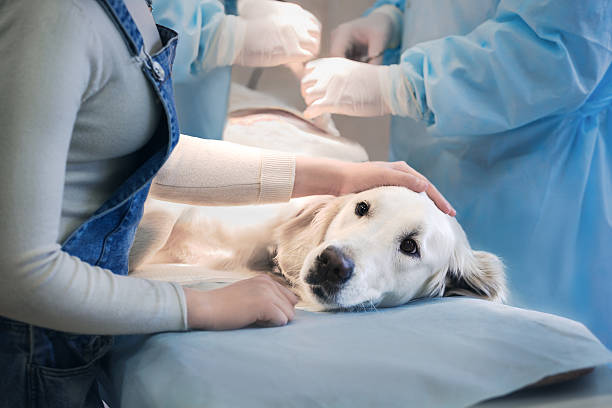Simplified Surgeons: Easy sailing through your pet’s surgical consultation
Regarding your animal friend, always first concern is making sure they receive proper treatment. Should your pet need vet surgery you could find yourself quite unsure about the procedure. Knowing what goes on during the surgical consultation, nevertheless, will help you to relax and guarantee your readiness for the road ahead. Ensuring the welfare of your animal throughout the operation depends first on a pet surgical consultation. This is the moment to ask questions, compile all the data required to make wise decisions, and get confident about the treatment your pet would get. Let’s go through what to anticipate from this crucial conference.
-
Initial Review and Medical Evaluation
The veterinarian will begin the session by first carefully evaluating your pet’s health. This phase includes reviewing the medical history of your pet and inquiring about any lately observed changes, habits, or symptoms. You should provide all you know since even minute information can enable the veterinarian decide on the best course of action for your pet’s procedure. This is also the time the veterinarian will physically assess your pet for symptoms of disease or other health issues that can compromise the operation. Should your pet have any continuous medical issues, such allergies or heart problems, they will be carefully discussed.

-
Clarifying the Surgery
Once the veterinarian is clear on the state of your pet, they will go over the specifics of the surgery. They will go over the reasons the surgery is required, the processes involved, and the anticipated results. The veterinarian will assist you through a regular operation or anything more complicated to ensure there are no surprises. During this phase of the consultation, it is advisable to ask questions as knowing the goal and technique of the surgery will enable you to be more sure about the choice.
-
Pain Management and Anaesthesia
Most procedures need anesthesia, hence during the consultation the veterinarian will go over how they will control your pet’s pain throughout the operation. The anesthesia chosen will be customized to meet the particular requirements of your pet, and the veterinarian will keep careful eye on them to guarantee their safety during the operation. Additionally covered will be pain management following the procedure, so arming you with knowledge about post-surgical treatment expectations. This could call for drugs or more visits to guarantee your pet heals well.
-
Recoverability and Post-Surgery Maintenance
Talking about the rehabilitation process comes out as one of the most crucial components of the session. Following the surgery, the vet will walk you through pet care. This covers advice on keeping them comfortable, looking for any symptoms of an infection, and knowing when to call the veterinarian should something appear unusual. Along with a schedule for follow-up visits and check-ups to ensure your pet is recuperating correctly, you will also find
Although getting ready for your pet’s vet surgery can be taxing, a thorough consultation helps you to negotiate the whole process. Knowing the operation, the diagnostics needed, and the post-operative care can help you to assist your pet through the surgical and healing phases. Recall that the first concerns of your pet are comfort and safety; so, the consultation guarantees that everything is set up for a favorable result. Your pet is in skilled hands if you have open communication and well considered plans.

